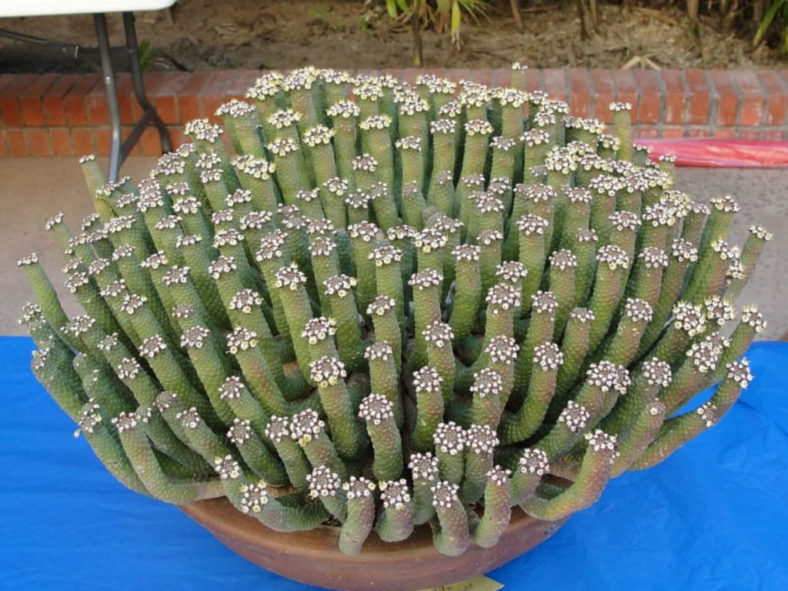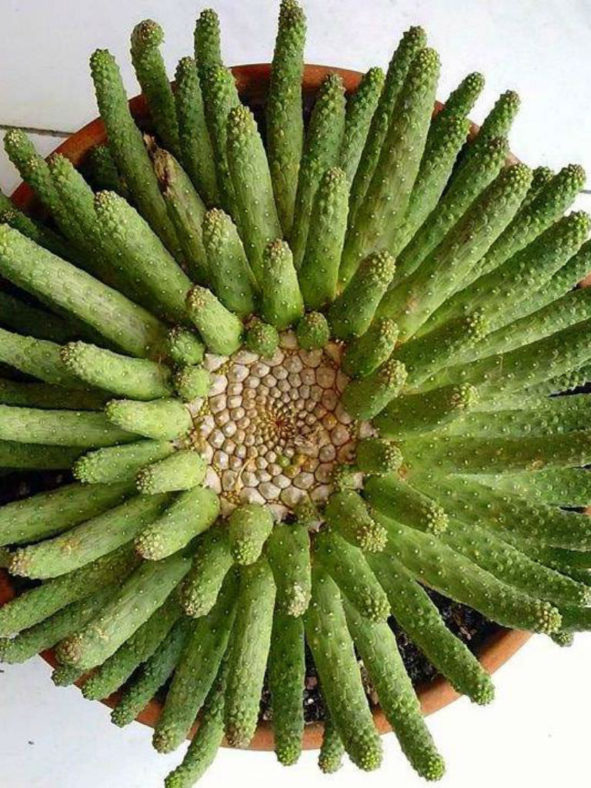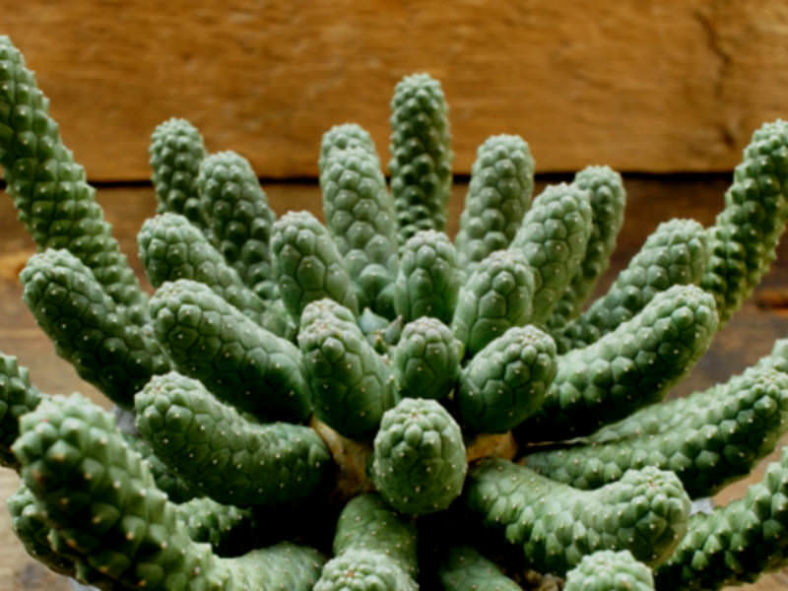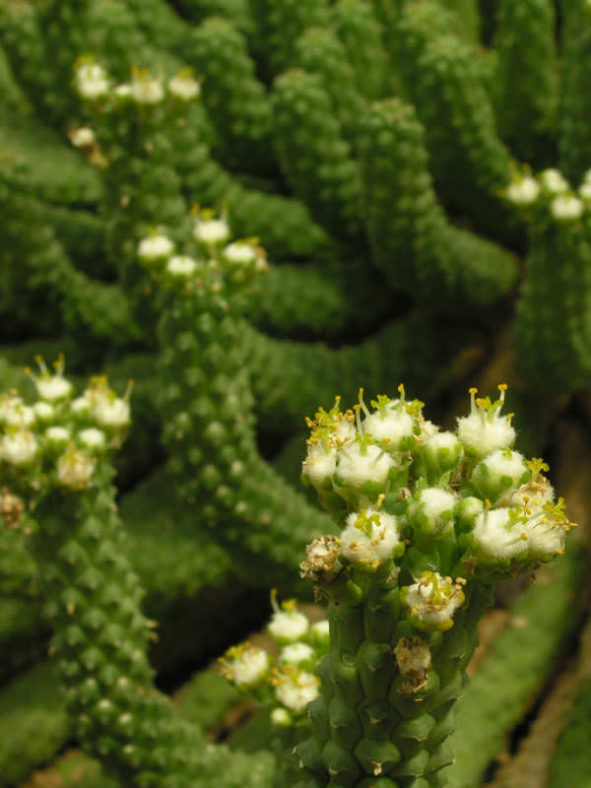Scientific Name
Euphorbia esculenta Marloth
Common Name(s)
The True "Vingerpol"
Synonym(s)
Euphorbia inermis var. laniglans
Scientific Classification
Family: Euphorbiaceae
Subfamily: Euphorbioideae
Tribe: Euphorbieae
Subtribe: Euphorbiinae
Genus: Euphorbia
Etymology
The specific epithet "esculenta" (pronounced "es-kew-LEN-tuh") means "edible" and refers to the use of this species by local farmers as food for their livestock.
Origin
Euphorbia esculenta is native to South Africa (Cape Province).
Description
Euphorbia esculenta is a succulent plant that has an underground caudex with the outer part bearing a rosette of numerous crowded branches in several series. The caudex is club-shaped or obconic and can reach a diameter of 8 inches (20 cm). The branches are cylindrical, slightly tuberculate, and can grow up to 8 inches (20 cm) long and up to 1 inch (2.5 cm) in diameter. They are green on the young parts, becoming pale brown with age. The whole cluster of branches can reach a height of 10 inches (25 cm) and a diameter of 16 inches (40 cm).
The white flowers with yellow reproductive organs appear clustered at the end of branches.

Hardiness
USDA hardiness zones 9b to 11b: from 25°F (-3.9°C) to 50°F (10°C).
How to Grow and Care
Euphorbia esculenta is an easy-to-grow species suited for well-drained soil in full sun. It is cultivated as an ornamental and is a favorite of succulent plant enthusiasts. Once established, this relatively slow-growing and long-lived plant will be content in its position and soil for years.
This spurge likes a deep pot with generous drain holes to accommodate its taproot. It needs a very airy potting medium that is permeable to water. It consists of nonorganic material such as clay, pumice, lava grit, expanded slate, and only a little peat leaf mold. Repot every two years.
Euphorbia esculenta can tolerate moderate shade. A plant growing in the shade should be slowly hardened off before being placed in full sun, as it will be severely scorched if moved too suddenly from shade into the sun.
Water regularly during the active growing season. No water should ever be allowed to stand around the roots. Keep almost completely dry in winter. This succulent will tolerate dryness and even thrive in poor, dry soils, but does better when grown in nutrient-rich soils with regular watering.
Learn more at How to Grow and Care for Euphorbia.
Links
- Back to genus Euphorbia
- Succupedia: Browse succulents by Scientific Name, Common Name, Genus, Family, USDA Hardiness Zone, Origin, or cacti by Genus
Photo Gallery
Click on a photo to see a larger version.


